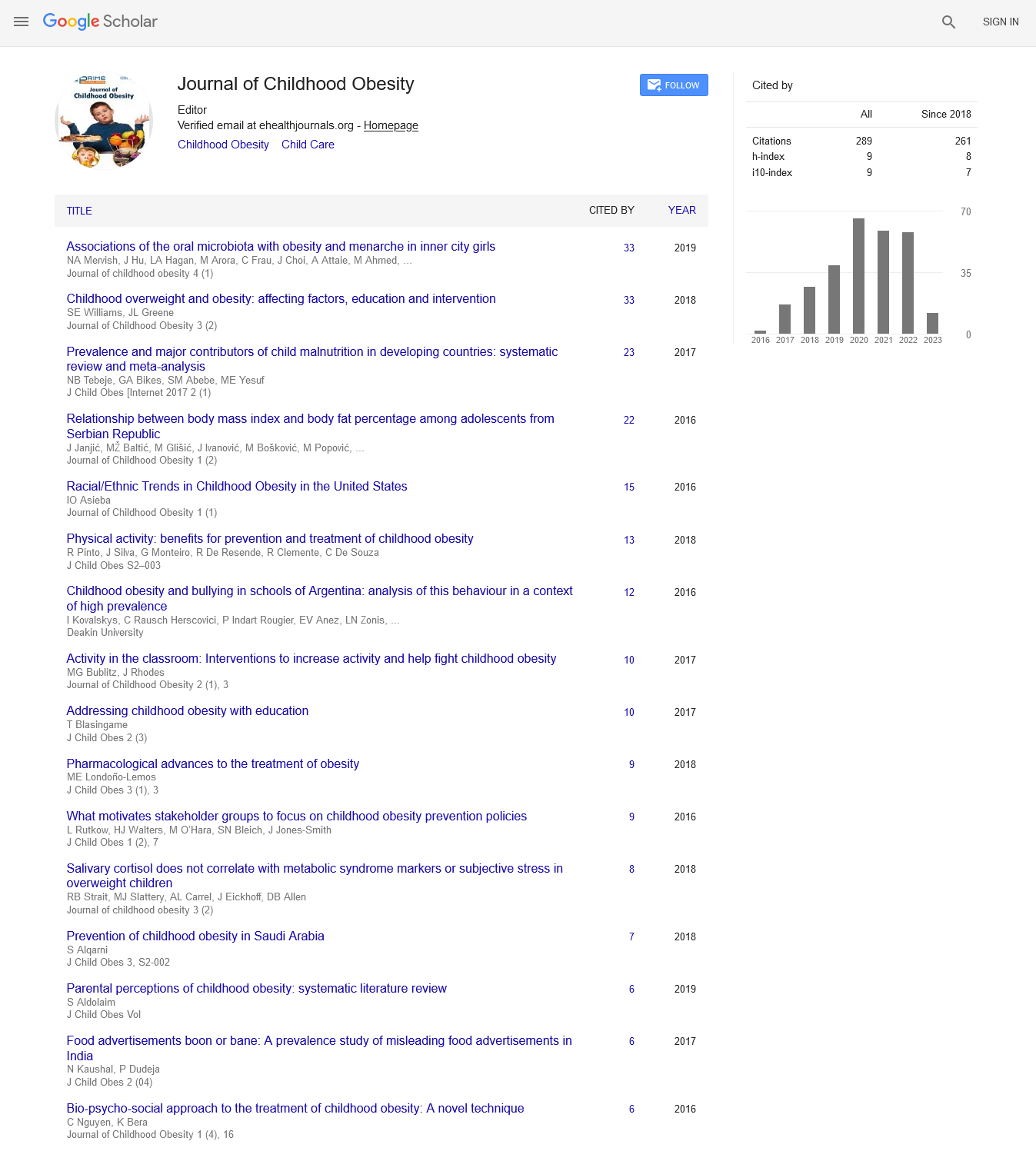Short Communication - (2024) Volume 9, Issue 3
Navigating the Journey of Infant Feeding: Nurturing the Future
Elizabeth Cooper*
Department of Obstetrics, University of Kent, UK
*Correspondence:
Elizabeth Cooper,
Department of Obstetrics, University of Kent,
UK,
Email:
Received: 29-May-2024, Manuscript No. ipjco-24-20531;
Editor assigned: 31-May-2024, Pre QC No. ipjco-24-20531 (PQ);
Reviewed: 14-Jun-2024, QC No. ipjco-24-20531;
Revised: 19-Jun-2024, Manuscript No. ipjco-24-20531 (R);
Published:
26-Jun-2024, DOI: 10.21767/2572-5394-24.9.21
Introduction
Infant feeding is a profound aspect of parenting, laden with
choices, challenges, and an immense sense of responsibility.
It is a journey that begins from the moment a baby is born,
where nourishment transcends mere sustenance, becoming a
foundation for growth, development, and lifelong health. As
society evolves, so too does the understanding and approach
to infant feeding, making it imperative for caregivers to stay
informed and make decisions that align with both scientific
recommendations and personal circumstances. Breastfeeding
is often hailed as the gold standard for infant nutrition. The
World Health Organization (WHO) and the American Academy
of Pediatrics (AAP) recommend exclusive breastfeeding for the
first 6 months of life, followed by continued breastfeeding along
with appropriate complementary foods up to two years of age
or beyond. The benefits are well-documented: Breast milk is
a dynamic, bioactive fluid rich in antibodies, enzymes, and
hormones that bolster the infant’s immune system and support
optimal growth and development. However, the breastfeeding
journey is not always straightforward. Challenges such as
latching difficulties, low milk supply, and societal barriers can
make breastfeeding a stressful experience for some mothers
[1,2]. It is crucial for healthcare providers and communities
to offer robust support, including lactation consultants,
breastfeeding education, and conducive environments that
empower mothers to breastfeed successfully.
Description
Despite the myriad benefits of breastfeeding, formula feeding
remains a necessary and valid choice for many families.
Infant formula, designed to mimic human milk, provides
essential nutrients required for healthy infant development.
The decision to use formula can stem from various factors
including medical conditions, maternal employment, or
personal preference. It’s essential to dispel the stigma often
associated with formula feeding. While it does not provide the
immunological benefits of breast milk, modern formulas are
nutritionally adequate and can support a baby’s growth and
development. Importantly, the choice to use formula should
be supported without judgment, recognizing that a well-fed
baby and a healthy, stress-free mother are paramount. The
introduction of solid foods, typically around six months of
age, marks another milestone in infant feeding. This phase,
known as complementary feeding, is crucial for meeting the
growing nutritional needs of infants and for developing their
taste preferences and eating habits. Caregivers are encouraged
to introduce a variety of foods, including fruits, vegetables,
grains, and proteins, while continuing breastfeeding or formula
feeding [3,4]. Guidance on complementary feeding has evolved,
with current recommendations emphasizing the importance
of responsive feeding practices. This means observing and
responding to an infant’s hunger and satiety cues, fostering a
positive feeding environment, and encouraging self-feeding to
promote autonomy and fine motor skills.
Conclusion
The journey of infant feeding is a dynamic interplay of biology,
culture, personal choice, and societal support. Whether a
mother chooses to breastfeed, formula feed, or a combination
of both, the ultimate goal remains the same: Nurturing the
health and well-being of the child. By fostering a supportive,
informed, and non-judgmental environment, we can ensure
that every caregiver has the resources and confidence to make
the best feeding decisions for their baby. After all, in feeding
our infants, we are nourishing the future. Moreover, advocating
for parental leave policies, workplace accommodations for
breastfeeding mothers, and access to breastfeeding support
services are critical steps toward enabling mothers to make
informed and empowered feeding choices.
Acknowledgement
None.
Conflict Of Interest
The author’s declared that they have no conflict of interest.
References
- Salas AA, Travers CP (2023) The practice of enteral nutrition: Clinical evidence for feeding protocols. Clin Perinatol 50(3):607-623.
[Crossref] [Google Scholar] [PubMed]
- Yu VY (1999) Enteral feeding in the preterm infant. Early Hum Dev 56(2-3):89-115.
[Crossref] [Google Scholar] [PubMed]
- Kotowski J, Fowler C, Hourigan C, Orr F (2020) Bottle-feeding an infant feeding modality: An integrative literature review. Matern Child Nutr 16(2):e12939.
[Crossref] [Google Scholar] [PubMed]
- Viswanathan S, Jadcherla S (2020) Feeding and swallowing difficulties in neonates: Developmental physiology and pathophysiology. Clin Perinatol 47(2):223-241.
[Crossref] [Google Scholar] [PubMed]
Citation: Cooper E (2024) Navigating the Journey of Infant Feeding: Nurturing the Future. J Child Obesity. 9:21.
Copyright: © 2024 Cooper E. This is an open-access article distributed under the terms of the Creative Commons Attribution License, which permits unrestricted use, distribution, and reproduction in any medium, provided the original author and source are credited.

